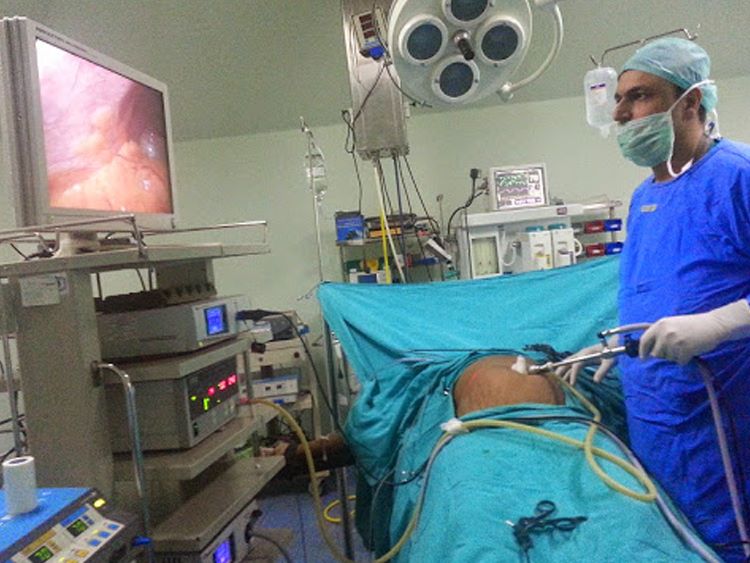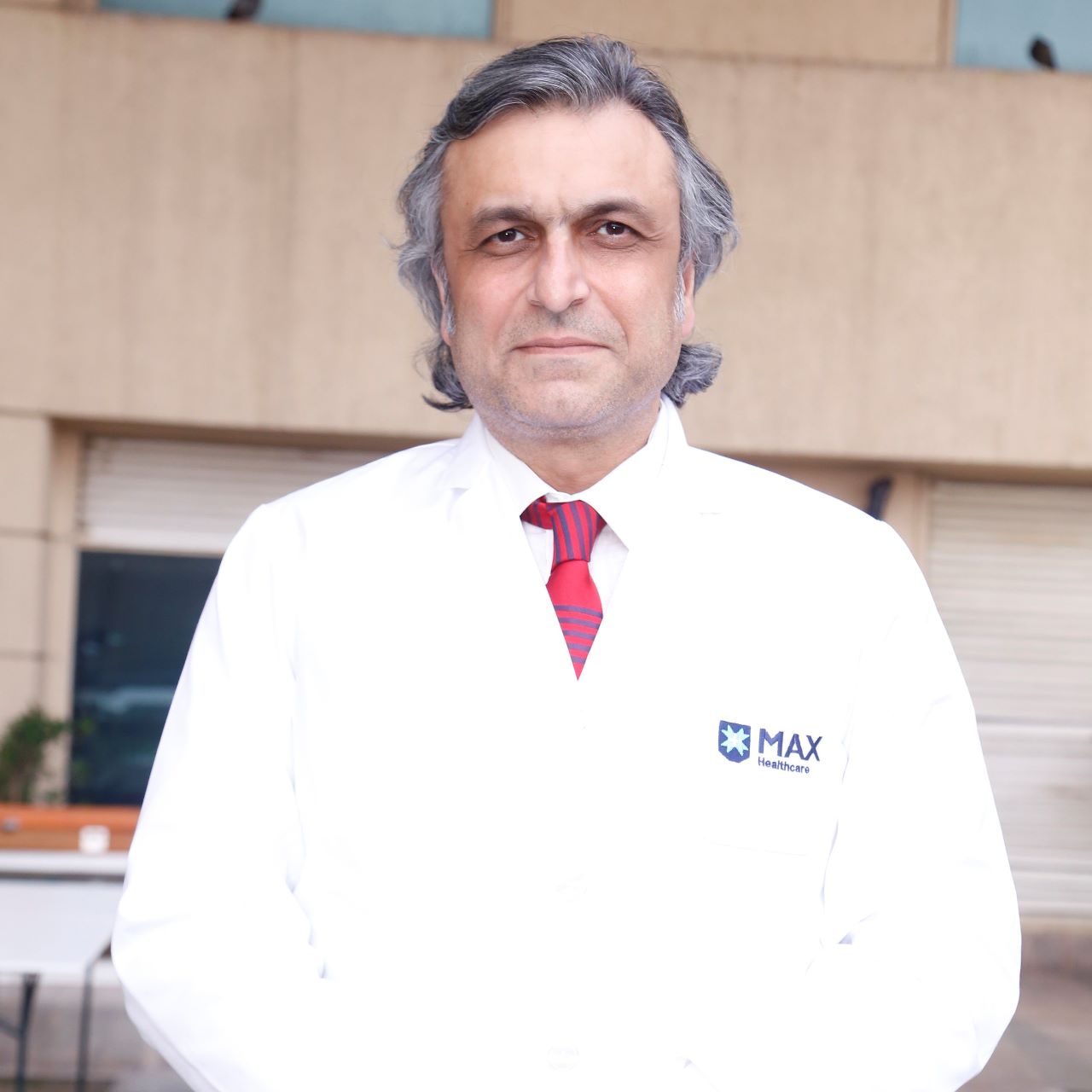Laparoscopic Colorectal Surgery
Laparoscopic colorectal surgery is the procedure used to manage the diseases related to colon and rectum. The surgery is performed when the non-invasive methods are not enough to treat the conditions. The doctor will evaluate your condition to determine if you are eligible for undergoing laparoscopic colorectal surgery. Obesity, large tumour, history of development of scar tissue after surgery may reduce your eligibility for laparoscopic surgery.
What Are The Complications If The Colorectal Diseases Are Not Treated?
The complications due to untreated colorectal diseases depends upon the type and severity of the disease. Colon cancer, if left untreated, may result in life-threatening complications. Further, the colon polyps, if not treated, may progress to cause cancer. Untreated inflammatory bowel syndrome increases the risk of colon cancer, blood clots, and eye, skin and joint inflammation.
Dr Ashish Gautam may treat several diseases with the laparoscopic colorectal surgery. Your doctor will decide your eligibility for undergoing the surgery. Some of the diseases are:
Inflammatory bowel diseases: Patients with this condition have inflammation in the lining of the colon. The surgeon may remove the inflamed section of the colon. The two types of inflammatory bowel diseases are ulcerative colitis and Crohn’s disease.
Colon cancer: The cancer of the colon may be primary or secondary. The primary colon cancer initiates in the colon. The secondary cancer starts in the other organ and metastasize to the colon. The surgeon removes either the complete colon or the cancerous part of colon.
Rectal cancer: Presence of cancerous tissues in the rectum is known as rectal cancer. The doctor may perform laparoscopic surgery to manage this condition.
Rectal prolapse: Rectal prolapse is the condition in which the rectum displaced from its position and protrudes through the anus. The surgeon performs the laparoscopic surgery to put the rectum back to its original position.
Diverticulitis: Diverticulum is the condition is the formation of pouches on the walls of the colon. Generally, the condition does not require treatment. However, in some cases these pouches get inflamed. This condition is known as diverticulitis. Some cases of diverticulitis require surgery.
There are various laparoscopic colorectal surgeries done by Dr Ashish Gautam. Some of them are:
Total Colectomy: During this surgery, the surgeons remove the complete colon. After removing the colon, the surgeon connects the rectum with the small intestine.
Total Proctocolectomy: During this procedure, the doctor removes the snus, rectum, and colon. The doctor forms a stoma and attaches it with small intestine.
Laparoscopic Right hemicolectomy: Right side of the colon is ascending colon. During this procedure, the surgeon removes the right part of the colon. The surgeon then attaches the small intestine with remaining part of colon.
Laparoscopic left hemicolectomy: Left side of the colon is descending colon. The doctor removes the left part during left hemicolectomy and attached the remaining colon with rectum.
Laparoscopic Sigmoidectomy: During this surgery, the surgeon removes the sigmoid colon and attaches the descending colon to rectum.
Laparoscopic low anterior resection: During this procedure, the surgeon removes the sigmoid colon and a part of rectum. The surgeon then attaches the descending colon with the remaining part of rectum.
Laparoscopic abdominoperineal resection: Complete sigmoid colon or its part, anus and rectum are resected during this procedure. The remaining sigmoid colon is attached to the stoma.
There are several advantages of laparoscopic colorectal surgery as compared to traditional surgery. The laparoscopic colorectal surgery results in minimal incision and less tissue damage. The recovery time after this procedure is less as compared to traditional surgery. Further, the scars remained after the surgery are also less as compared to open surgery. The risk of complications in laparoscopic colorectal surgery is less as compared to traditional surgery.


